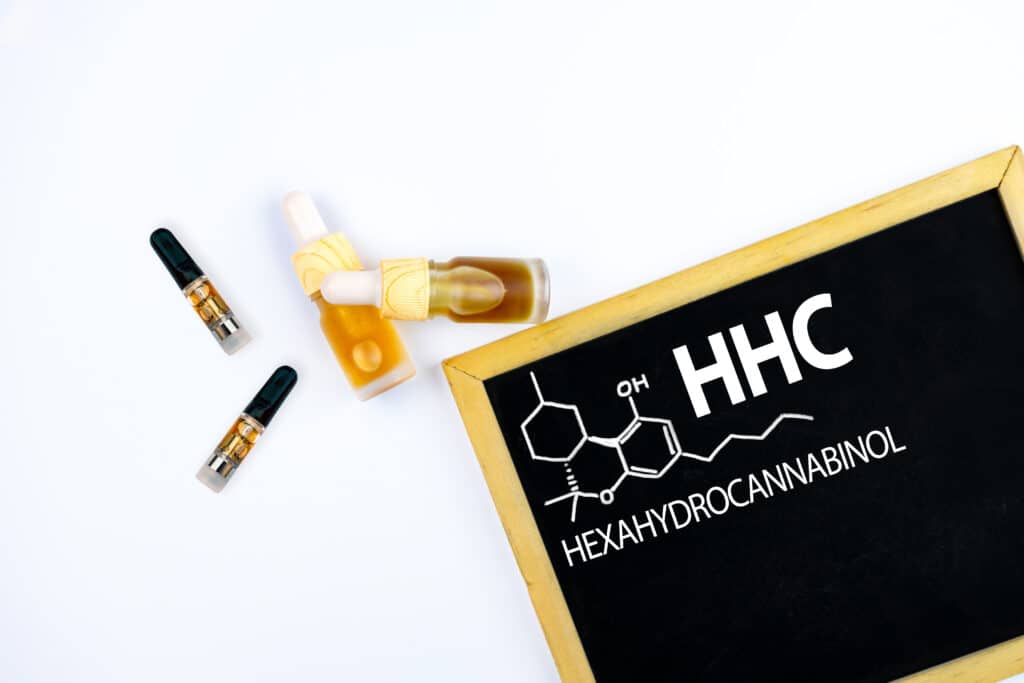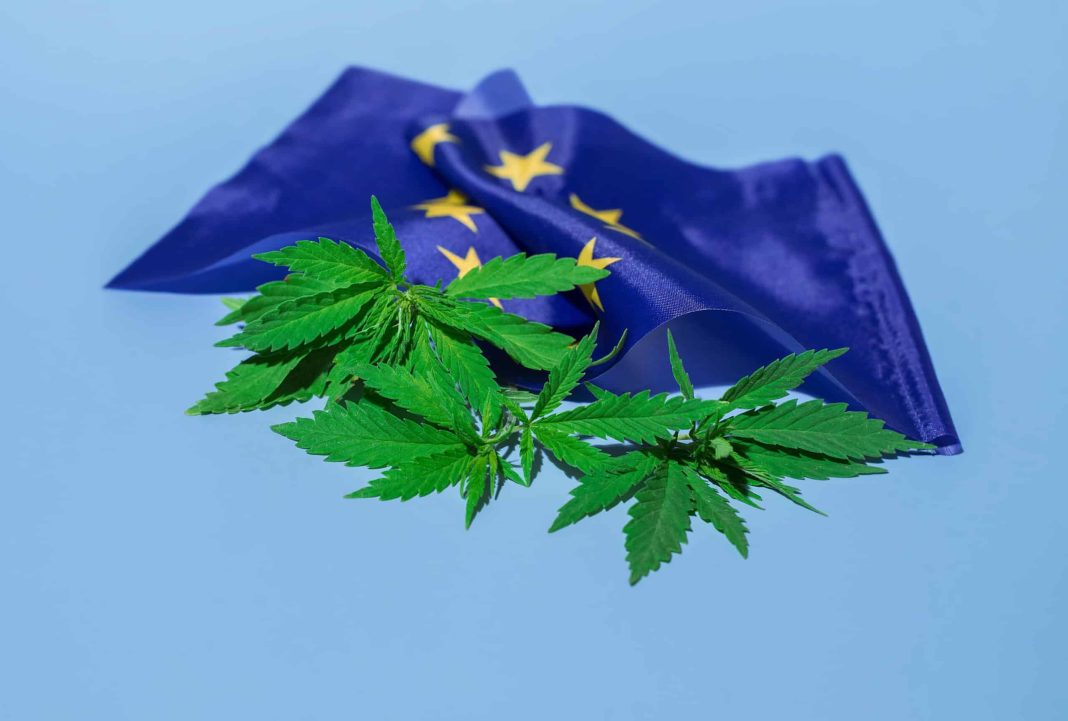A lot of ‘American’ things make their way to Europe. After all, if something becomes a fad in one place, you can bet it’s going to make news in another. This is what’s going on right now with Europe and the cannabinoids market, with a spotlight on HHC. The cannabinoids that helped America get high outside of regulation, are now doing the same thing in Europe.
If you live in a place with good access to weed, you might be confused about the cannabinoids conversation. For those who rely on these black market products to get the same high as those in legal states; cannabinoids offer a great loophole to regular weed laws. Whether a legal loophole actually exists, or the situation is indicative of government inability to do anything, is a debate in and of itself. Regardless of the answer, the products are here, and efforts to stop them have failed. This is now exemplified by the new HHC markets in Europe.
Cannabinoids are some of the compounds that make up the cannabis plant, and are responsible for the psychoactive effects. The two found in the highest amounts are THC and CBD. THC is found in higher amounts in high-THC marijuana, and CBD is found in higher amounts in low-THC hemp. The official legal determination between marijuana and hemp is .3% delta-9 THC, according to both US and EU law.
Tons of other cannabinoids exist, like delta-8 THC, delta-10 THC, CBN, THCV, THCO, and HHC among others. Few, if any, other then THC and CBD exist in high enough amounts for extraction and product production. This means some amount of synthetic processing takes place when making products. In the case of a cannabinoid created that doesn’t exist in nature (like delta-10), it means all products are made with synthetic production.
The cannabinoid debate is centered around the legalization of hemp via the 2018 US Farm Bill. The argument relies on the idea that the compounds are taken from hemp, and not marijuana. Hemp received its own definition, which separates it from the regulation of regular marijuana. The argument is that if the compounds come from hemp, they are therefore legal. There are, of course, some stipulations. Like that hemp doesn’t include provisions for synthetic production/processing; and that it’s not clear what this means for compounds that are specifically illegal in marijuana, like delta-9.
Regardless of legalities, what tends to be the case in such situations, is that people want what they want. If something is desired and available, it’s probably going to get used. Business-minded people in the industry want to find ways to sell products, and the cannabinoids market presents a great opportunity. They make a profit, and users who otherwise wouldn’t, have a way to gain a marijuana high. It’s a win-win.
The cannabinoids market functions mainly in the US, and has for years. But it should always be expected that a popular idea will spread elsewhere, especially when started in a place like the US. So though those in legalized places might be less familiar with these compounds; they are now spreading out globally to other places that have more restrictive weed laws. Namely, Europe.
HHC and the new cannabinoid market in Europe
It doesn’t seem like end users in this market care that much which compound they’re using. It could be delta-8 THC, HHC, or THCV; they all produce a standard weed-like high. We could debate that one does more or less than another (and certainly some won’t cause a high at all like THCA); but the reality is that they all function as an alternate way to get high without specifically using the illegal plant.
In my experience, they do the same thing. You’ll be hard pressed to find message boards or postings that indicate wildly different effects; or different effects at all between them. Let’s be honest, very few people understand the combination of letters, know what they mean, or know what they’re actually using. Plus, as unregulated markets that rely on synthesizing drugs, we can’t be sure that the name matches the product all the time. Something that might be dicier if not for the fact that none seem dangerous.
It seemed at first that cannabinoids might stay within the borders of the US, but in the last year or so, they spread to Europe. This isn’t shocking as Europe doesn’t have any completely legal weed markets. What it does have, however, is a growing trend of countries that want to legalize in some way; indicating populations that want use of the plant.

Since it takes time to legally rule something out; cannabinoid producers are taking advantage of the lack of regulation in Europe. And the people of Europe are taking a cue from Americans, and trying alternative cannabis products. In both cases there’s an argument that if something isn’t the exact illegal thing, or has base materials that are legal; that this means legality. In Europe, the more popular cannabinoid is HHC, which is often sold as ‘legal THC.’ In America, the more dominant cannabinoid is delta-8 THC.
HHC (Hexahydrocannabinol) is a naturally-occurring phytocannabinoid, that occurs so infrequently, its rarely seen in a plant. Its been known about since the 1940’s, but wasn’t a point of interest when the world created the 1961 and 1971 drug conventions. It’s certainly not listed as an ‘illegal’ substance in these conventions. The conventions don’t mention every specific psychoactive compound, nor do they speak of using cannabis raw materials to create something synthetic.
Where in Europe is HHC banned?
The states of America have reacted in different ways to the cannabinoids market. Some specifically outlawed cannabinoid products; some have so far ignored the situation; and still others legalized their use in some capacity. Likely as a way to reign in a black market that won’t go away. Minnesota is an interesting example; in that last year it made a provision for hemp-derived THC in edibles. Not long after, it graduated to a full legalization.
Similarly, different countries of Europe are making their own laws for cannabinoids like HHC. According to Business of Cannabis in May, the following countries instituted regulation, or are working on it: Estonia in February implemented a bill to add HHC to the psychotropic drugs list. In April, Switzerland made an amendment to add HHC to its banned substances list. Finland, also announced in April that all HHC products are banned. Iceland added HHC to its narcotics list in January. Poland announced in April that HHC is now included with narcotics.
In March, Austria reported that HHC was added to its banned substances list. Bulgaria announced plans to create legislation banning HHC as a schedule I drug. France’s Health Minister announced an intention to classify HHC as a narcotic. The Czech Republic created draft regulation to add HHC to the controlled substances list. Denmark announced through its Health Minister an intention to ban HHC. And Sweden, for its part, announced in April that the compound is under investigation.
For some places, like France, this is expected. A couple years ago, France was so adamant about keeping non-pharmaceutical CBD illegal, that it took the whole EU to court. And lost. I can’t stress enough that the legal actions were only for non-pharmaceutical products, while the country had no issue with pharmaceutical versions. France makes clear how countries are scared of the proliferation of markets they can’t control, and the desire to keep markets above board and taxable. According to a Euronews article, in a single year, shops selling CBD increased from 400 to 1,800 in the country.

France’s actions for HHC came on the heels of an EMCDDA (European Monitoring Centre for Drugs and Drug Addiction) report about HHC, which detailed that at least 20 member states (plus Norway) found the drug within their borders. Realistically, its comparable to finding weed, and seems to cause just as little harm; whether synthetic or not. But laws don’t follow logic. From how its reported, and the legal actions, you’d think HHC is an actual threat. According to the report, HHC was first seized in Europe in May 2022, and that 70% of member states found it in seizures by December.
As per the report, the biggest supplier to Europe is the US. The second biggest supplier is the Netherlands, for which the US produces twice as much as the Netherlands. What the report doesn’t give, is any kind of death or injury toll. This is important, because it means that all of this happening, is happening without a known threat from the compound in question.
Conclusion
Much like in America (where a likely government-forced Shopify ban still didn’t hurt the market), there’s likely little Europe can do to stop this. More and more countries want to legalize, which is already causing some tension in the EU. Perhaps if HHC serves one main purpose in Europe (aside from getting people high), it might be to move legalization processes faster. Governments might not want to legalize because of money lost to some industries; but they also hate markets that they can’t tax or control.
Now, as one last little mindf*ck, consider that opioids kill people by the tens of thousands every year, yet still exist through regulation, in the US and abroad. Now consider that all these European countries to implement bans against this non-death-toll compound, did so in a matter of months. As in, somehow, the jury is out on opioids for years, despite hundreds of thousands of deaths; but is 100% sure that HHC is a threat within months, when not one person died? Logic? Nope!
Hello and welcome. We appreciate you stopping in at Cannadelics.com. We are an independent news site geared towards the worlds of cannabis, hallucinogens (and beyond). We’ll update you daily, so don’t be a stranger. And sign up to the Cannadelics Weekly Newsletter, for direct email updates and killer product promotions.





